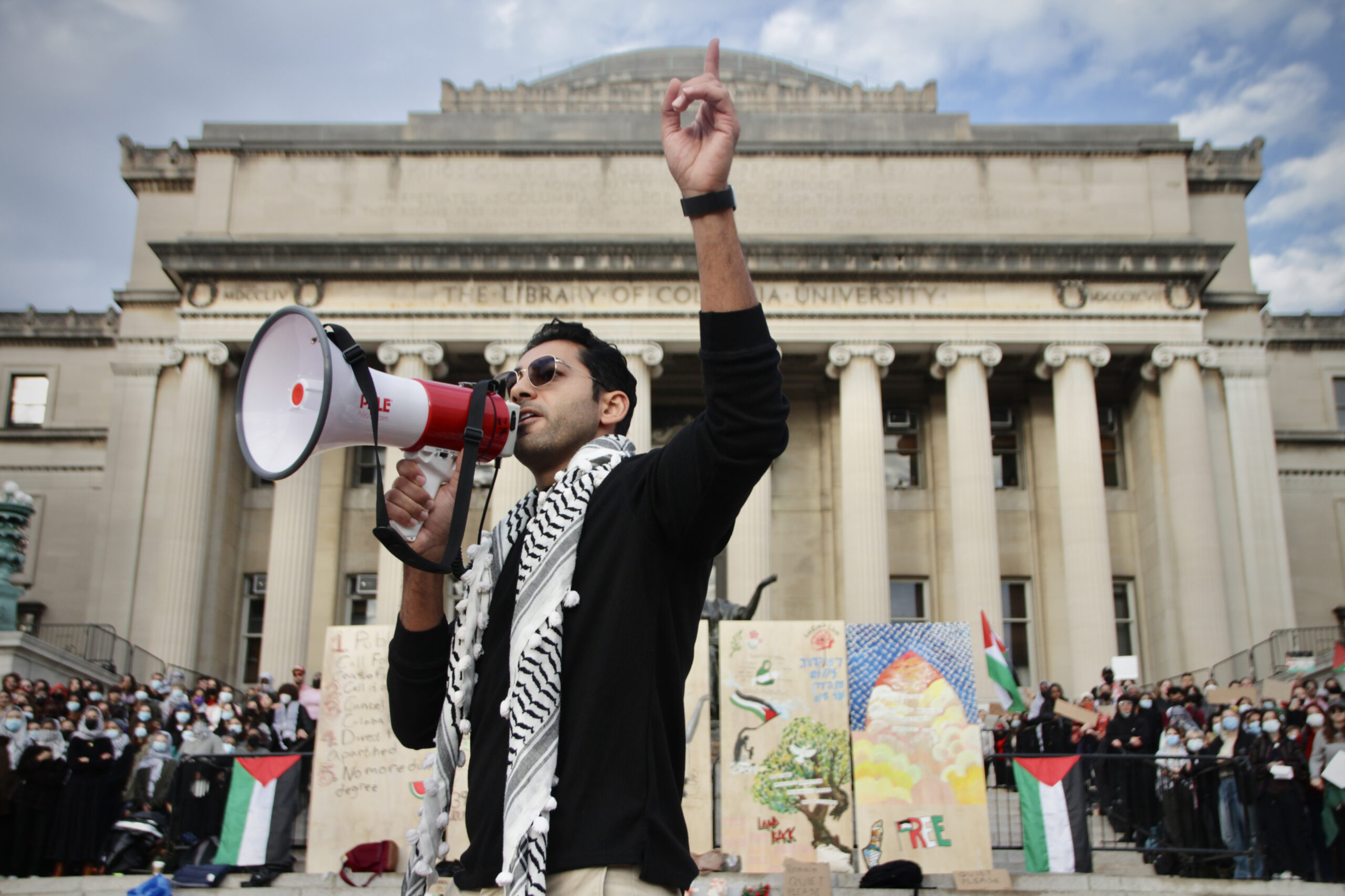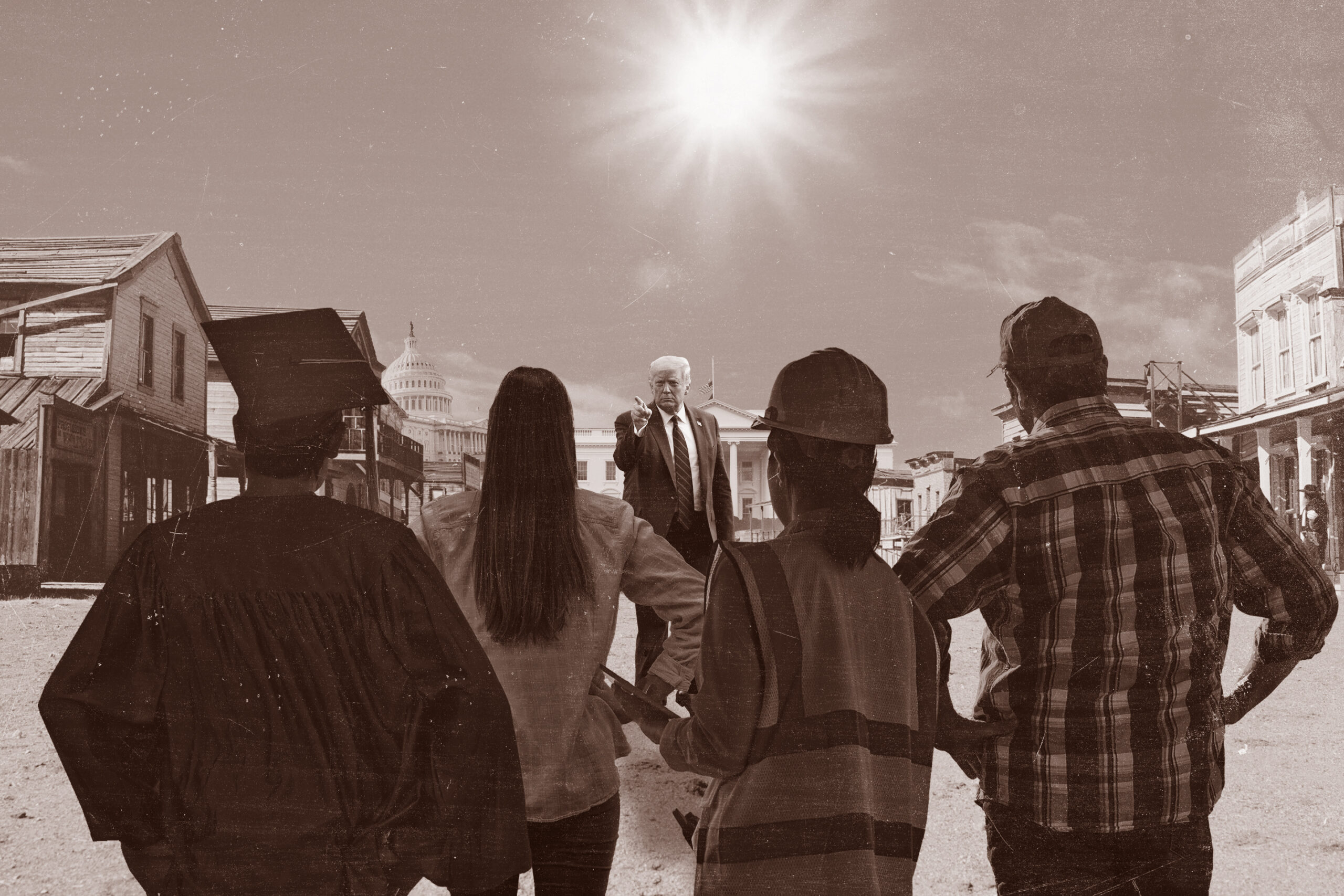Every week since Inauguration Day there’s been some “high noon” reckoning that shines a spotlight on people who must decide whether to acquiesce or to make a difference. It may be a powerhouse law firm caving to the president’s demands for free legal services, or the refusal of a lowly civil servant to turn over the personnel files of citizens to DOGE. In High Noon in America, Capital & Main looks at the individuals and institutions that succeeded or failed to stand up against intimidation.
Eventually the Trump administration will have to stop paying attention to the courts. There really is no way around it: At some point the Justice Department must decide it’s a waste of time to keep sending its lawyers to present fantasist, whataboutist arguments to unsympathetic judges. When that day comes we’ll all know the jig is up — we’ll be a nation of lawbreakers and not laws, and the Constitution will go into storage. No more Mr. Nice Guy.
An unspoken awareness of this reality may help explain why so many writers and politicians who’d normally be expected to ferociously fight the administration’s drive to transfer all of the country’s wealth to the 1%, to poison the environment and to deport anyone with an accent have not sounded particularly ferocious against the lies, threats and gaslighting emanating from Washington. James Carville early on begged his fellow Democrats to “roll over and play dead” and allow “the Republicans to crumble beneath their own weight and make the American people miss us.”
The blowback was thunderous, but others in the commentariat still advised restraint over resistance. Responding to the DOGE bloodbath, the liberal Jewish Forward’s senior columnist, Rob Eshman, declared that he, for one, would not be trading in his Tesla any time soon. “I think there are better ways to register my opposition to what Musk is doing,” he wrote. The column’s sub-headline had already tipped his hand: “Elon Musk’s ideas are hateful. But protesting him isn’t the only political priority that matters.”
This lordly, above-the-fray tone often infects responses to MAGA among respectable commentators, as if they’re trying to set an example of civility for a Tomorrowland America that will somehow have survived the continual battering of the Constitution and economic sabotage that define the present.
It could be, though, that pundits who go from lions to lambs on Trump and his familiars hope to earn their gratitude after the day the president tires of arguing his whims in court. What could the benefits be? Perhaps, like Bill Maher, they’ll be invited to dinner at the White House. Maybe it’ll be something not as grand but more practical in the long run, like not having their home addresses and pictures of their children posted online, or being assigned the bottom bunk in a detention center.
In any case, Eshman later admitted he’s keeping his Tesla because “I have two years left on my lease, meaning the buyout and early termination fees would be a very costly political statement.”
* * *
Not everyone has the luxury of choosing between principles and lease termination fees. Mohsen Mahdawi, a Columbia University student, is in the fight of his life to remain in the United States, from which the Justice Department is working overtime to deport him. He is smack in the middle of the fray. He’s also a legal permanent resident and roars like any American whose rights are being trampled.
“I am saying it clear and loud,” Mahdawi told supporters on April 30, upon release from a Vermont state prison. “To President Trump and his cabinet: I am not afraid of you.”
The U.S. district judge who ordered Mahdawi’s release on bail (which Eshman applauded) noted that “the two weeks of detention so far demonstrate great harm to a person who has been charged with no crime.” Judge Geoffrey W. Crawford’s words were a High Noon rebuke to the Trump administration, but what probably got deeper under the skin of a White House that increasingly relies on fear to govern was the last part of Mahdawi’s statement: “I am not afraid of you.”
Such taunting defiance of authority has often been missing from opinion pieces written by people who prefer “statesmanlike” pronouncements to what they might really feel. Unfortunately, this sort of mushy, Meet the Press stuff has a long history in our country. Playwright Lillian Hellman, reflecting on the “scoundrel time” of her blacklisting, once wrote: “I feel betrayed by the nonsense I had believed. I had no right to think that American intellectuals were people who would fight for anything if doing so would injure them.”
While Hellman, with all her Stalinist baggage, may not have been the best person to lecture Americans about intellectual courage, she did at least draw a line during the Red Scare by refusing to name names. Mahdawi’s throwdown to the president drew just such a line. That lion’s roar also has a storied presence in American history — the history carved out by rebels and nonconformists. His words were a 60-year echo from the Free Speech Movement that erupted on the University of California, Berkeley, campus. There, another student, Mario Savio, delivered a speech that drew a line in the sand and would launch an era of protest.
In the cool afternoon air of late autumn in 1964, Savio stood on the steps of Sproul Hall and said: “There is a time when the operation of the machine becomes so odious, makes you so sick at heart, that you can’t take part! … And you’ve got to put your bodies upon the gears and upon the wheels … upon the levers, upon all the apparatus, and you’ve got to make it stop!”
Far from playing dead, it would seem that now is the time for lines to be drawn in the sand — any sand. Even Rob Eshman appeared to draw one at the end of his column, though Donald Trump and Elon Musk probably did not feel especially put on notice.
“To all the people who slap swastikas on random Teslas,” Eshman wrote, “go ahead and try it: I have a bucket of warm, soapy water at the ready.”
Copyright 2025 Capital & Main


 Latest NewsFebruary 3, 2026
Latest NewsFebruary 3, 2026
 Featured VideoFebruary 4, 2026
Featured VideoFebruary 4, 2026
 The SlickFebruary 2, 2026
The SlickFebruary 2, 2026
 Column - State of InequalityFebruary 5, 2026
Column - State of InequalityFebruary 5, 2026
 Column - California UncoveredFebruary 6, 2026
Column - California UncoveredFebruary 6, 2026
 The SlickFebruary 10, 2026
The SlickFebruary 10, 2026
 Latest NewsFebruary 12, 2026
Latest NewsFebruary 12, 2026
 Latest NewsFebruary 10, 2026
Latest NewsFebruary 10, 2026

